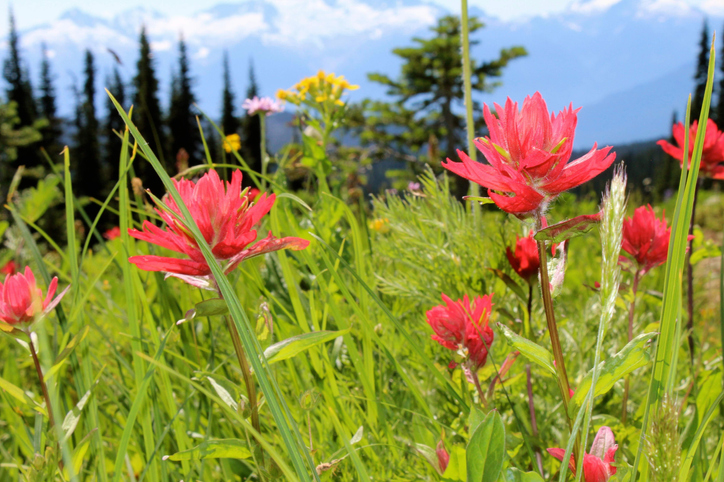Springtime is here, and your yard is a canvas full of potential. Colorado’s diverse climate and high elevations may make it more difficult to know what flowers and shrubs will thrive in your yard. Discover some options in our guide to native Colorado plants. Who knows, “Yard of the Year” could be within your grasp!
Why Native Plants?
When landscaping in Colorado, it’s best to use native plants due to their adaptability and sustainability.
- Native plants require less external help with watering and fertilizing.
- Native plants attract a variety of insects, pollinators, small animals, and other fauna to the garden.
Shrubs
Below we feature a wide variety of popular landscaping shrubs native to Colorado. These include both evergreen and deciduous shrubs as well as shrubs that produce flowers and berries.
Mountain Mahogany
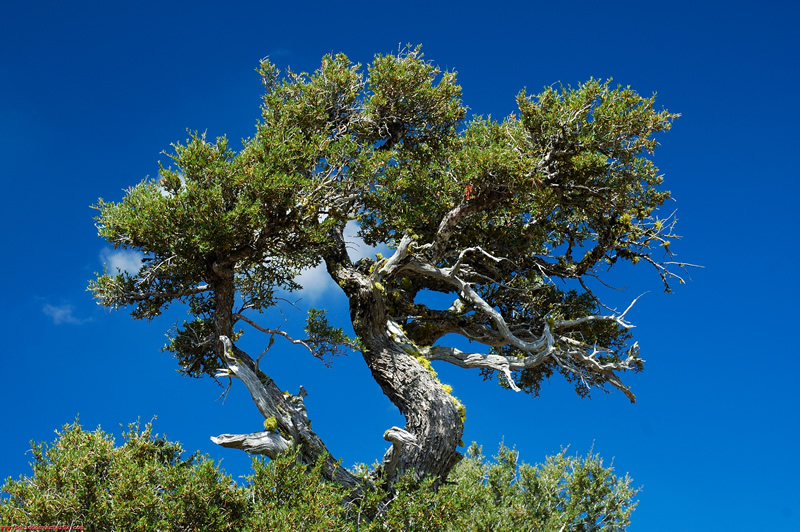
Mountain Mahogany is an evergreen shrub that thrives in elevations between 4,000 and 8,500 feet. Their foliage is thick, leathery, and has a gray-green color. The plant produces tiny yellow flowers in the spring followed by fuzzy, twisted seed tails.
Wax Currant
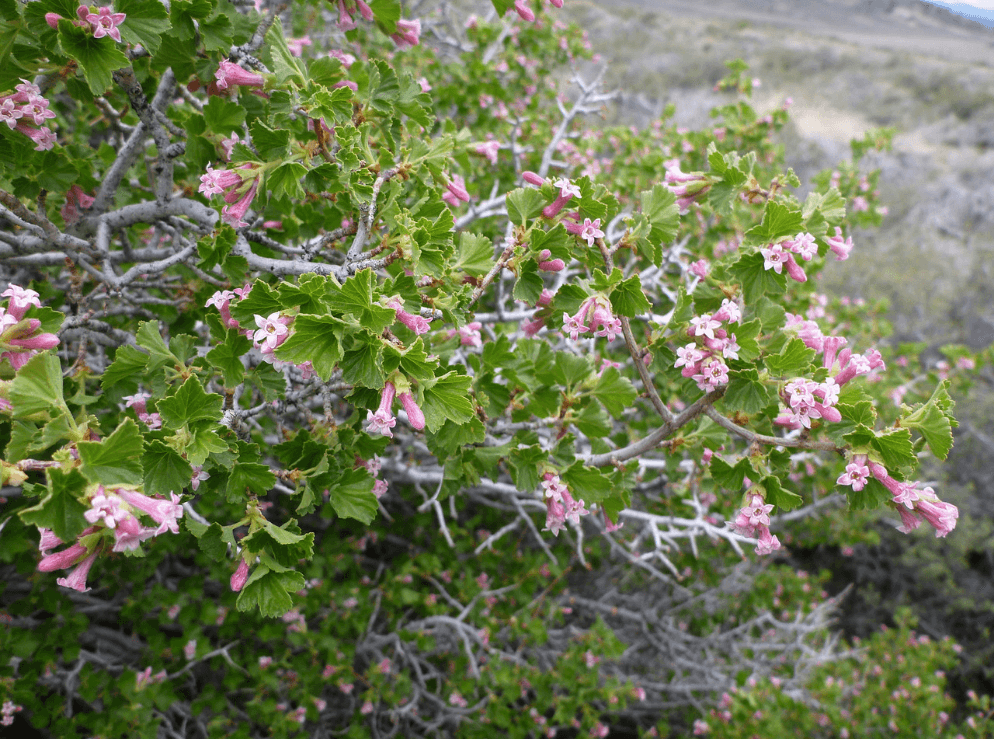
The Wax Currant grows mainly in Colorado’s Foothills zone. Wax Currant grows leathery leaves, pink flowers in the spring, and edible orange-red berries in the summer.
Sagebrush
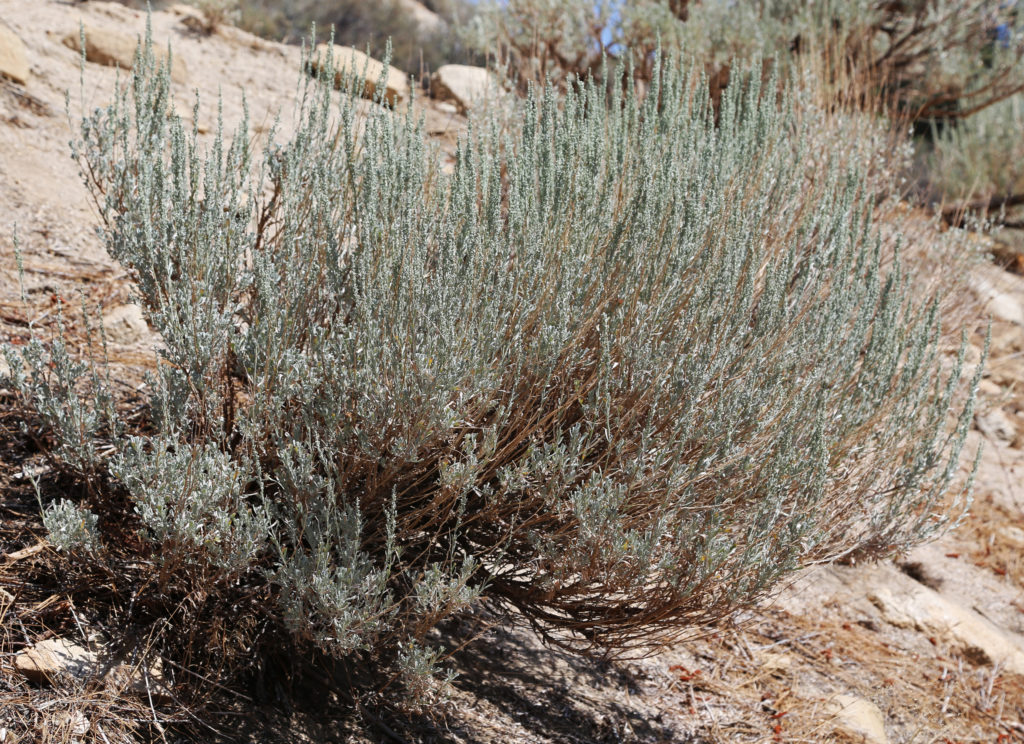
The silver Sagebrush grows primarily in the western half of Colorado and in the eastern plains area of the state. This shrub has thin, silver-gray leaves and long, woody stems. Sagebrush is very important to the ecosystem by providing a habitat for hundreds of bird, animal, and plant species.
Hoptree
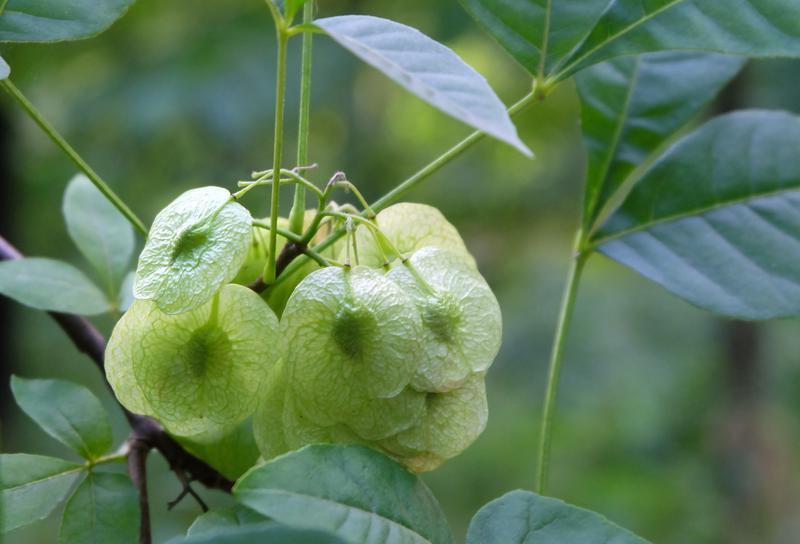
A Hoptree is a small, deciduous shrub found in the plains and foothills that features trifoliate leaves and small, fragrant flowers.
Chokecherry
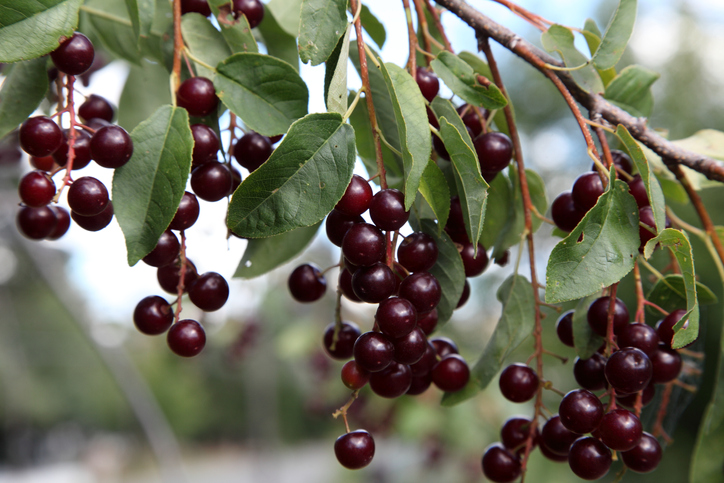
The Chokecherry is a large shrub that can reach up to 12 feet and produces a long, white blossom that becomes a dark, red fruit. The Chokecherry fruit is popular for making jams, jellies, and syrups. You can find it along stream banks, gullies, and canyon bottoms in all life zones except for Alpine.
Western Sandcherry
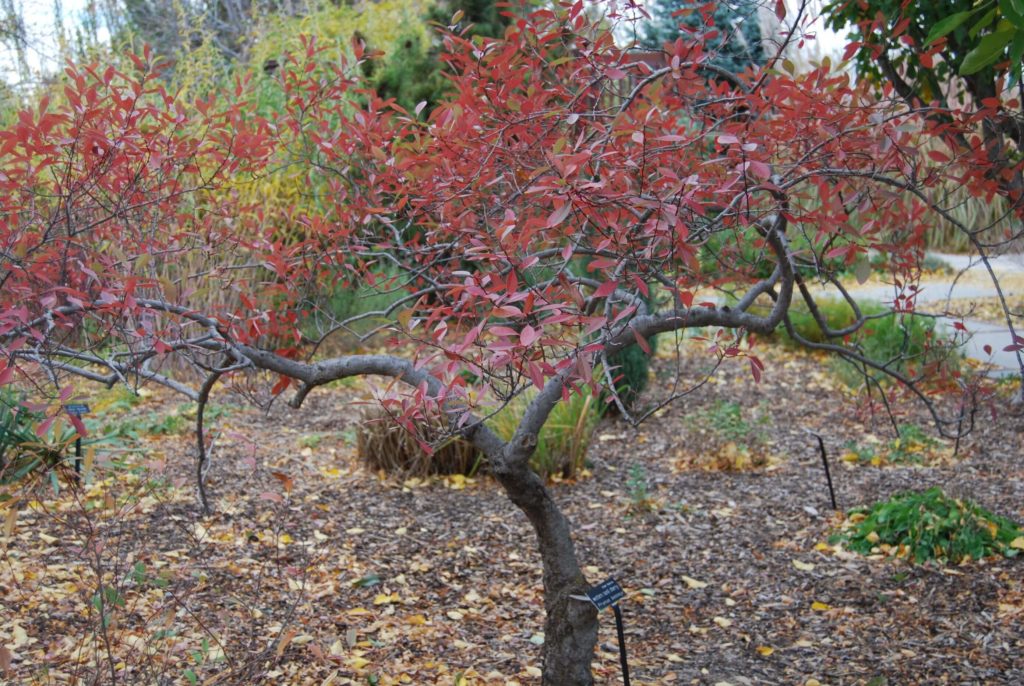
The Western Sandcherry is a rounded shrub with grayish-green leaves and white, fragrant flowers that are followed by a purplish fruit.
Flowers
During the spring months, landscape experts say to focus on cold-hardy flowers. These varieties stand a better chance of surviving any late freezes. Below are some popular native flowers for landscaping.
Rocky Mountain Columbine
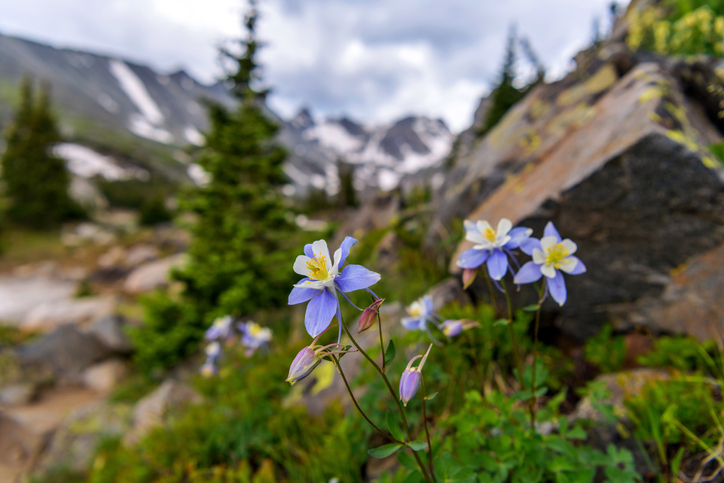
The Rocky Mountain Columbine is the official state flower of Colorado. This plant is the perfect match to our climate and flourishes just about everywhere in the state. The blue-hued bloom loves high altitude and is also found in shades of yellow, red, violet, and white. In lower elevations the flower prefers sunny spots, but it can handle full sun above 7,000 feet.
Russian Sage
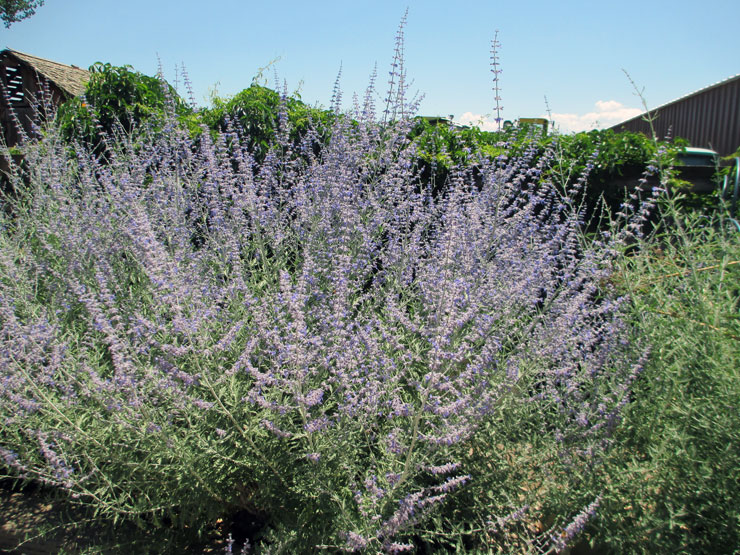
Russian Sage produces purple blooms that add plenty of texture to any garden. The plant prefers well-drained soil and lots of sunshine, but experts advise watering moderately when plants are young or recently transplanted.
Yellow Alyssum
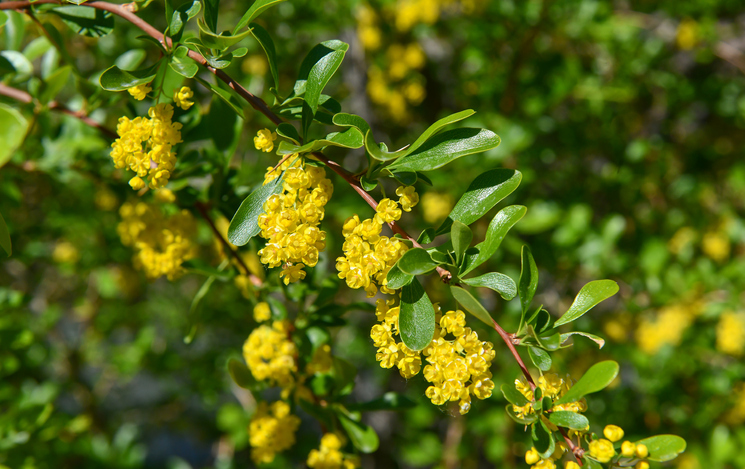
Yellow alyssum is a perennial widely known for its clusters of cheery yellow flowers that appear in late spring to attract pollinators like bees and butterflies. The plant is hardy and has a high creeping ability, so place it in a sunny spot with well-drained soil where it can cover a lot of ground.
Bronze Fennel
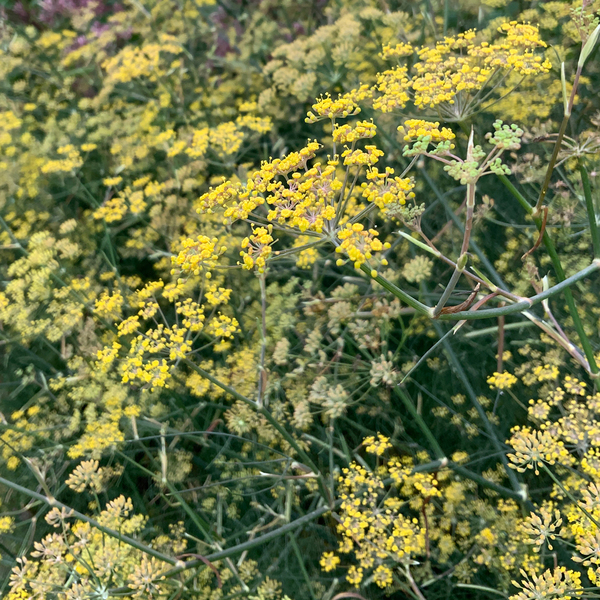
Bronze fennel is an edible herb with leaves that can be used in cooking to provide a sweet licorice flavor. This plant is great to use in the back of a border landscape because of its unique, wispy leaves that grow up and out.
Prairie Zinnia
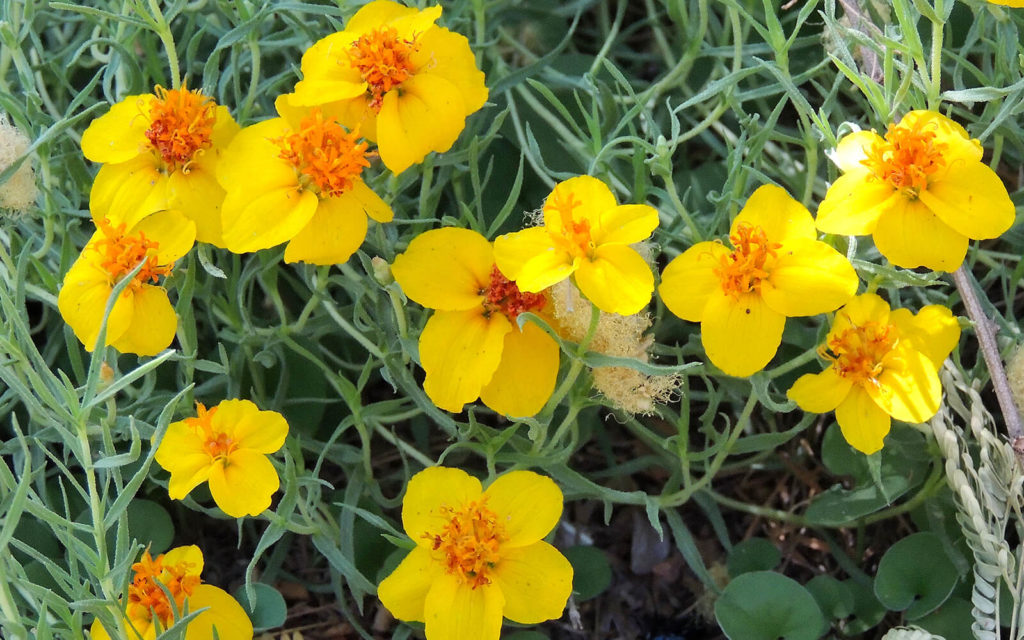
Prairie Zinnias are weather-hardy, long-lasting, and water-wise pollinators. They can grow almost anywhere! Plant prairie zinnias along walkways or where they may be most appreciated in your garden.
Insure Your Home with Farm Bureau Insurance
Put the same amount of care and consideration into your insurance as you put into your landscaping. Protect the investment you’ve made into your home with high-quality homeowner’s insurance from Colorado Farm Bureau Insurance. Get a quote from a local agent by using our Agent Finder.

